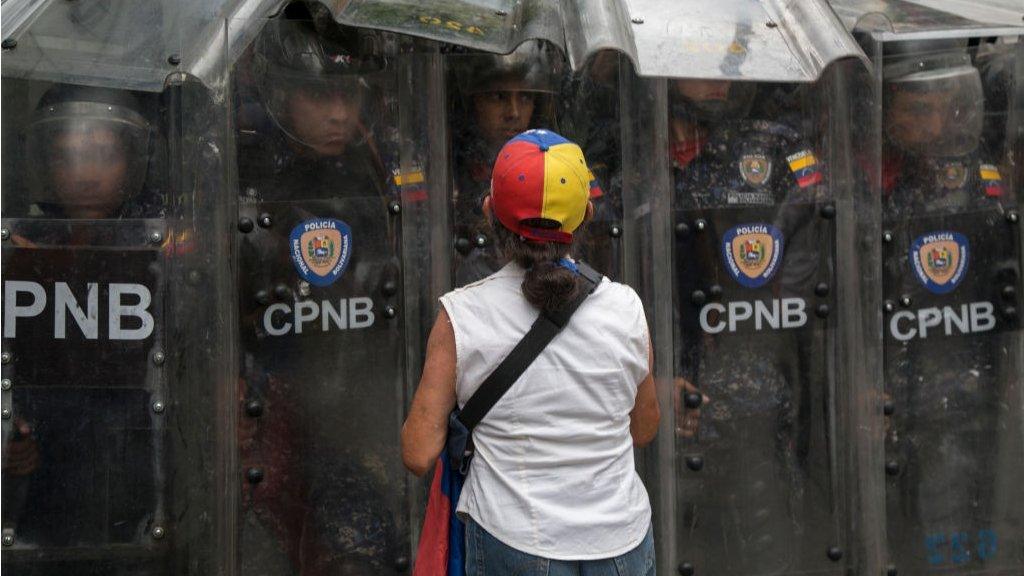Venezuela crisis: Spain vows to protect opposition figure at embassy
- Published
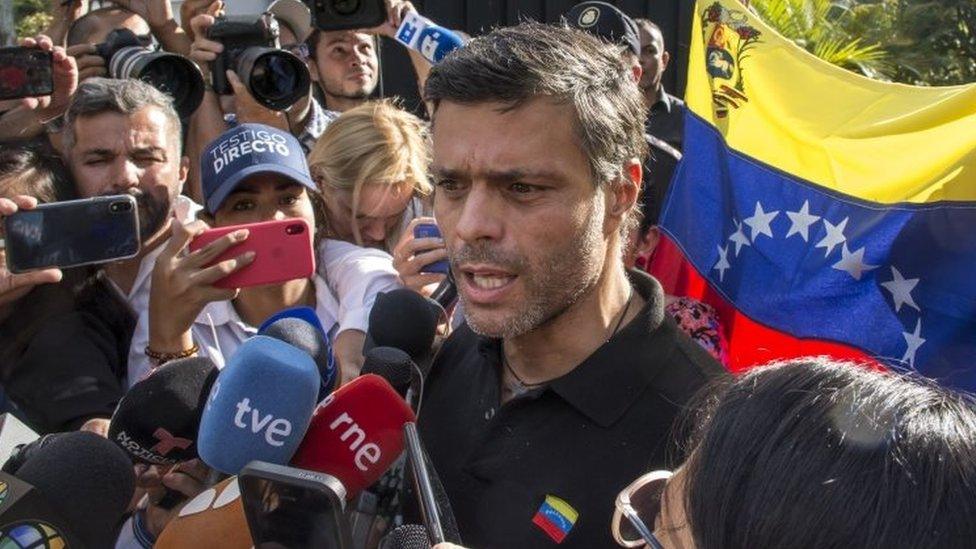
Leopoldo López sought refuge at the Spanish diplomatic mission after Tuesday's dramatic events
Spain has said it will not allow Venezuelan authorities to enter its embassy in Caracas and arrest a leading opposition figure, Leopoldo López.
Mr López sought refuge there on Tuesday after appearing with opposition leader Juan Guaidó to call for a rebellion to oust President Nicolás Maduro.
Speaking to reporters, he said more "military movements" were on the way.
A defiant Mr Maduro has said "any coup plotter" would be defeated. Four people have died in clashes since Tuesday.
Both President Maduro and Mr Guaidó claim they have the support of the armed forces and have been staging rival rallies in the capital.
In January, Mr Guaidó declared himself Venezuela's interim leader and he has the support of more than 50 countries including the US, UK and most Latin America nations.
But Mr Maduro - who is backed by Russia and China - has refused to cede power.
What did López say?
In a statement, the Spanish foreign ministry said that under no circumstance would it force Mr López to leave the embassy building.
Spain's government also said that Mr López and his family had sought safety in their embassy but had not claimed political asylum.
Speaking from the diplomatic mission, Mr López said he had met senior Venezuelan military officers before Tuesday's events.
"The fissure that opened on 30 April will become a crack and that crack is what is going to break the levee," he said.
Tear gas and water cannon hit Venezuela protesters on Wednesday
Mr López had been under house arrest but said he was released on Tuesday by security agents backing the opposition.
A Venezuelan court has issued an arrest warrant for Mr López for violating house arrest. It says Mr López should serve the rest of his 13-year sentence in prison.
He was arrested in 2014 and accused of fuelling violent protests that left dozens of people dead that year.
Meanwhile, footage shared on social media on Thursday appeared to show the Spanish embassy being surrounded by the Venezuelan military.
What has Maduro been doing?
On Thursday, he appeared flanked by soldiers at an army base in Caracas, in a show of defiance towards his opponents.
He praised the army's loyalty, warning that "no-one dare touch our sacred ground or bring war to Venezuela".
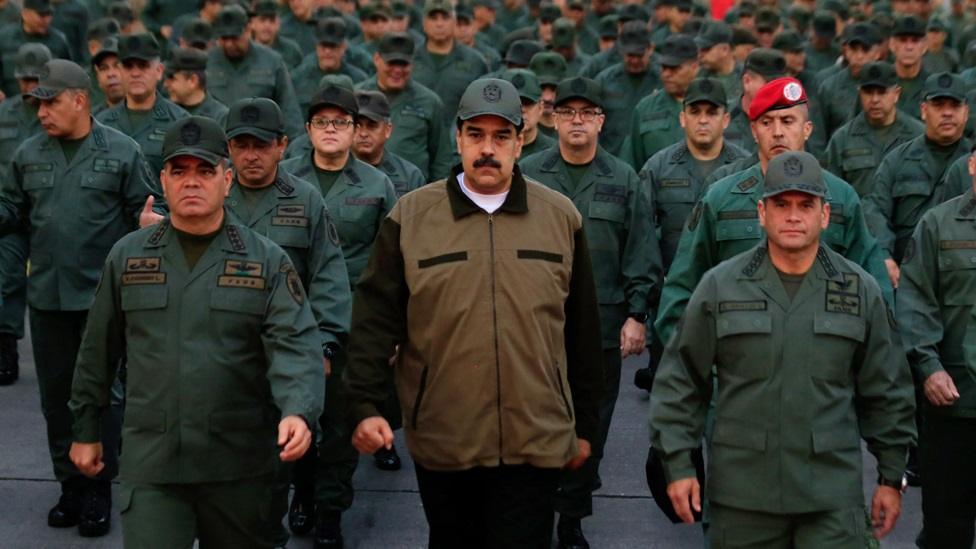
President Maduro (C) appeared alongside military forces
He was speaking after Mr Guaidó had urged public employees to hold a series of strikes to force the government to resign.
Mr Guaidó on Tuesday declared what he called the "final phase" of the operation to topple Mr Maduro.
What international reaction has there been?
Tensions are rising between the US and Russia over the crisis.
US Secretary of State Mike Pompeo has said the US may take military action to resolve the crisis, and accused Russia and Cuba of destabilising the country through their support for Mr Maduro.
Russian Foreign Minister Sergei Lavrov has told Mr Pompeo that America's influence over Venezuela is destructive and a violation of international law.
UN Secretary General António Guterres has appealed for both sides in Venezuela to avoid violence, while the EU has called for "utmost restraint to avoid the loss of lives and an escalation in tensions", external.
Why Venezuela matters to the US... and vice versa
An emergency meeting of the Lima Group of Latin American countries has been scheduled for Friday.
- Published28 January 2019
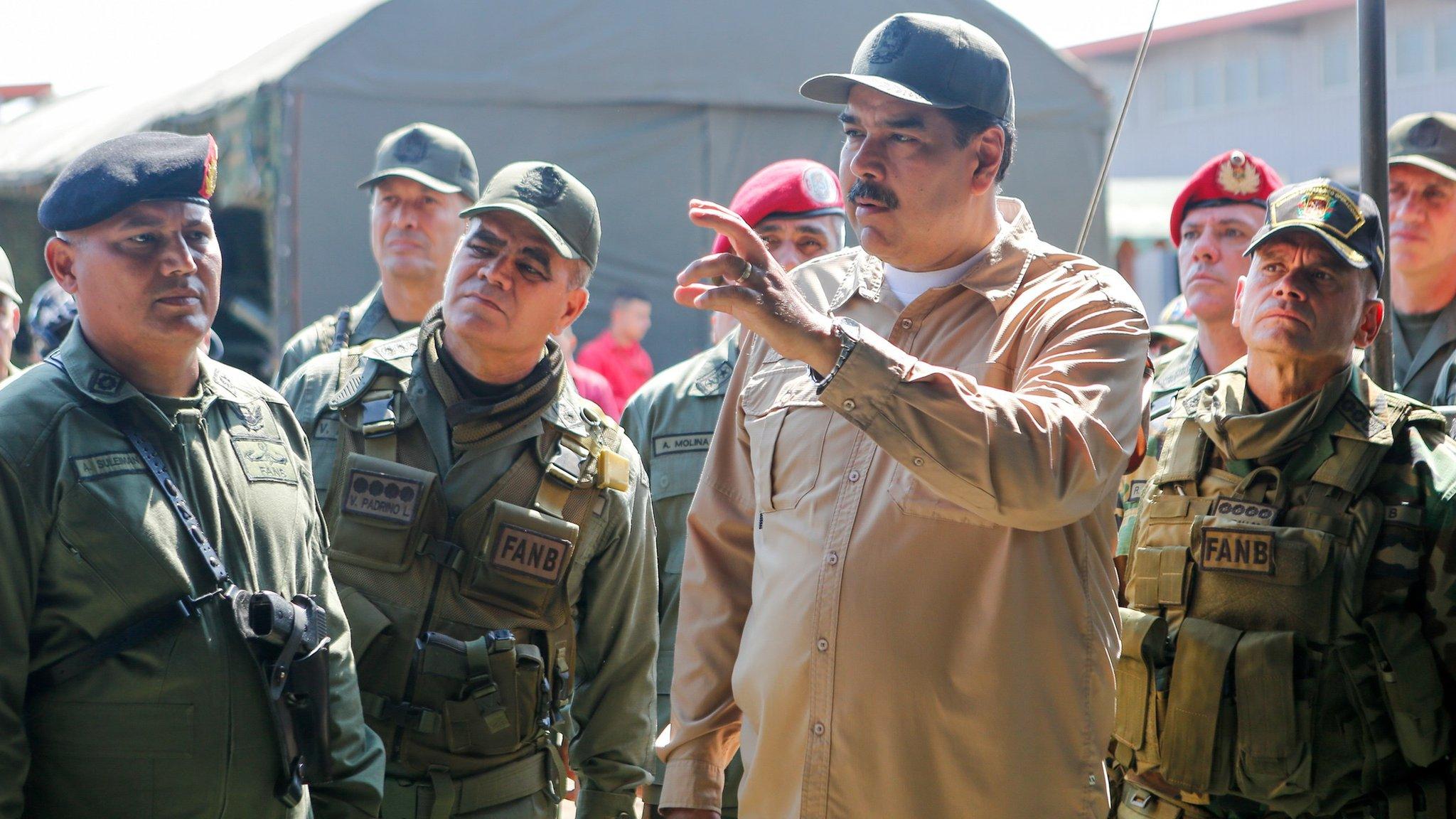
- Published17 April 2019
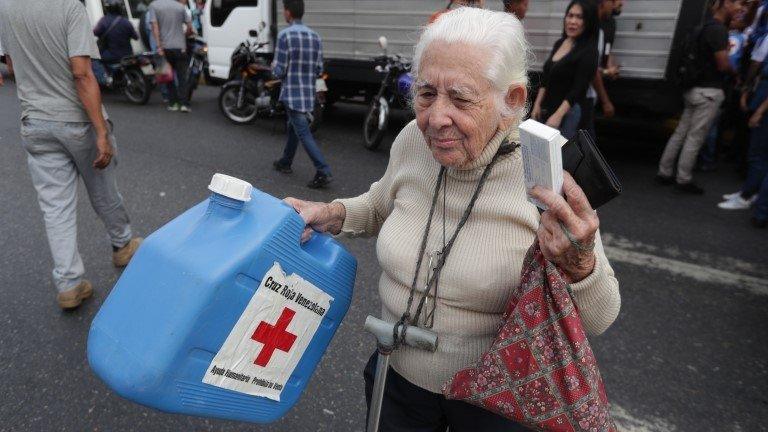
- Published30 April 2019
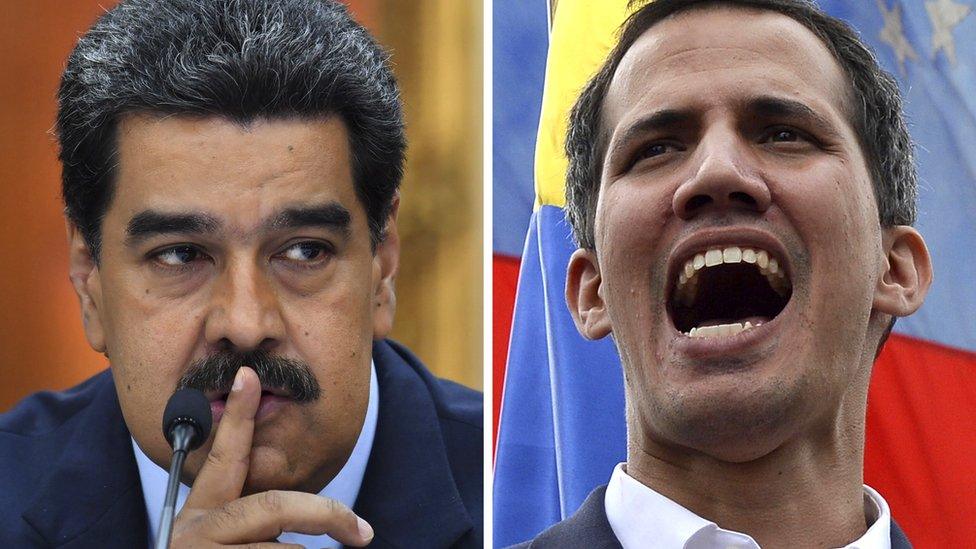
- Published12 August 2021
